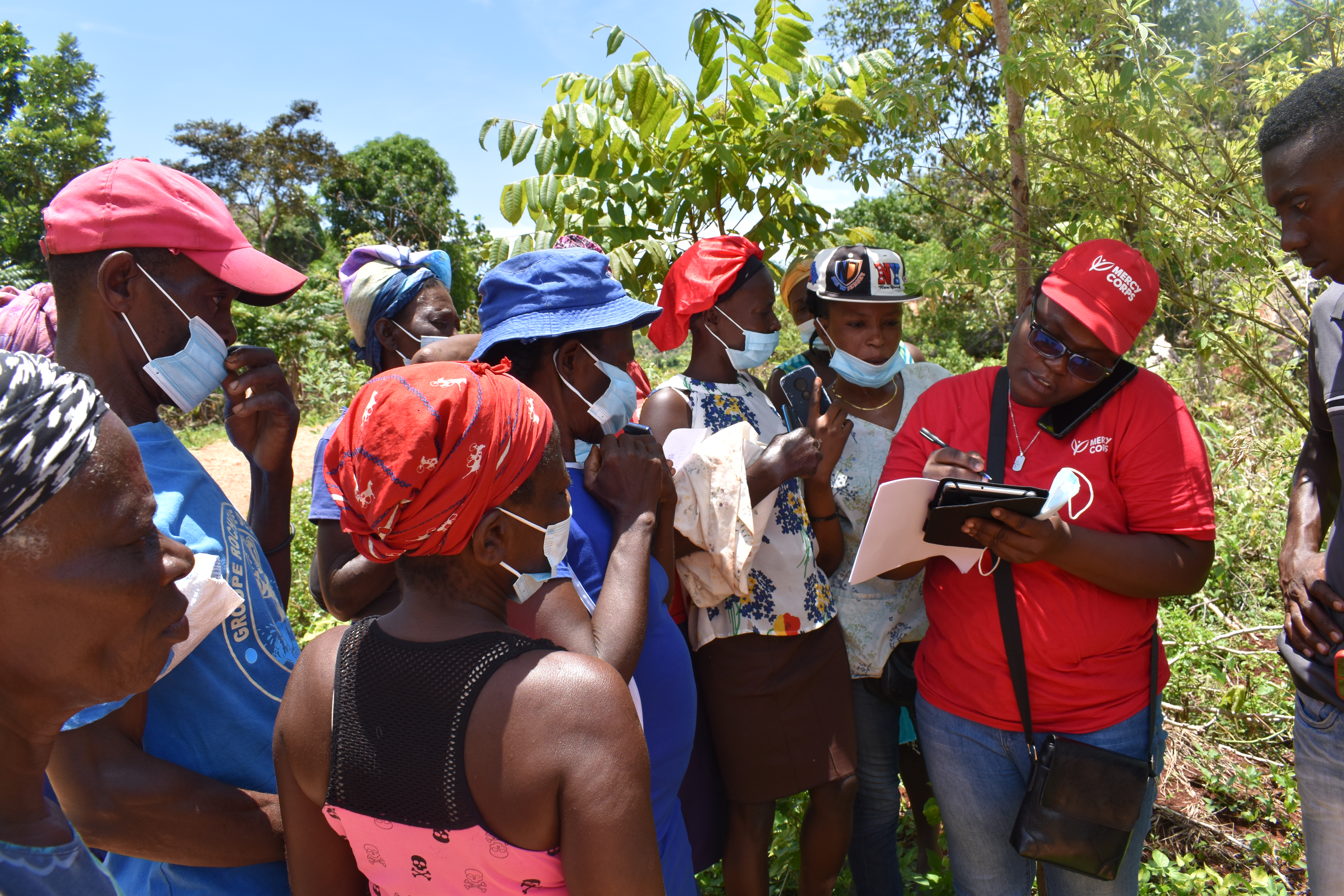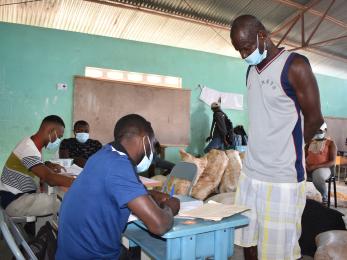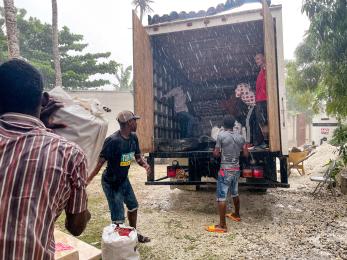Breadcrumb
Haiti
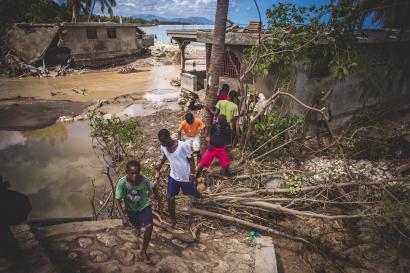
Since 2010, we have provided relief in the wake of natural disasters and helped lift thousands of Haitian families out of poverty. In 2019, our work reached 91,400 people across Haiti.
The context
Haiti has a population of 10.9 million people across 10,714 square miles. Some 4.6 million people — more than 40 percent of the population — are in need of urgent humanitarian assistance. This includes more than 3.6 million people facing crisis levels of hunger.
Since gaining independence from France on the first day of 1804, Haiti has had a tumultuous political history which includes an occupation by the U.S. from 1915 to 1934 and a period of military rule from 1991 to 1994. Economic and political instability persists today, with civil unrest intensifying at the end of 2019.
Communities in Haiti are incredibly resilient considering the complex challenges they face. Haiti is the poorest country in the Americas. A quarter of the population lives in extreme poverty — on less than $1.90 per day — and is deprived of basic human needs as a result.
The increasingly severe impacts of climate change exacerbate these challenges. Natural disasters impact Haiti more frequently and severely than almost every other country in the world. In 2020, Haiti ranked third out of 187 countries most affected by extreme weather and climate-related stressors.
In spite of these challenges, the people of Haiti are hopeful that a brighter future is coming.
Our impact
Since 2010, we have been providing lifesaving disaster relief, empowering women and young people, providing economic opportunity and more to help build a stronger, more stable tomorrow for all of Haiti. Here are our primary focus areas:
- Disaster preparedness and response
- Social cohesion and good governance
- Financial inclusion and economic opportunity
- Youth engagement
- Gender equality
Now, as Haiti faces the threat of COVID‑19, we are adapting our work so support can continue with appropriate social distancing. We have also developed further programming to raise awareness of the coronavirus and help prevent its spread.
Disaster preparedness and response
We support communities to adapt, recover, and transform from within in the face of periodic natural disasters.
In the wake of disaster, we work quickly to meet the urgent needs of survivors and give families the resources they need to build back stronger. After the 2010 earthquake, we provided 1 million Haitians with emergency food, clean water and shelter materials, as well as post-disaster assistance. In 2016, we helped nearly 90,000 people recover from the devastation of Hurricane Matthew.
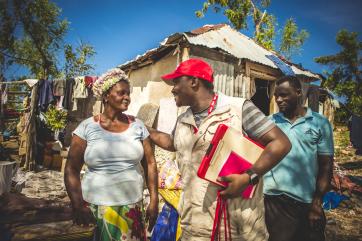
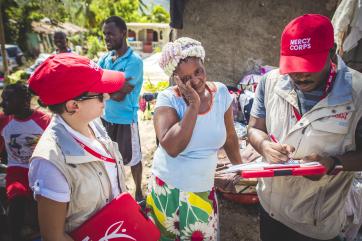
We also help communities better prepare for future disasters. Thousands of Haitian households are more resilient to climate change and economic shocks as a result of our work.
Social cohesion and good governance
We’re currently working to improve security and build stronger social cohesion in urban communities, with a focus on empowering youth and helping Haitians become better prepared for future disasters through early warning systems.
We work to strengthen the accountability and collaborative spirit of civil society organizations and local leaders. Building skills in community consultations, organizational management, and community mobilization enables these leaders and local institutions and organizations to mobilize their communities to not only envision a brighter tomorrow, but to take action to make that vision a reality.
Financial inclusion and economic opportunity
We have been building a network of professional community agents who help community members form savings and loans groups, provide financial education, and link members to services such as health insurance and microfinance institutions. We have also been a leading innovator on new products like mobile wallets and micro-insurance, and continue to explore opportunities to help the financial ecosystem develop for the benefit of all Haitians.
We’re building resilience to climate change and lifting families out of poverty by boosting small businesses and entrepreneurs and improving the practices and incomes of rural farmers.
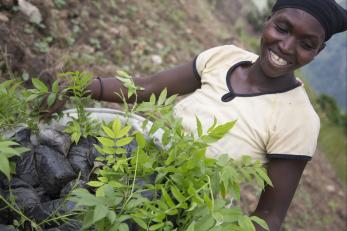
Since 2011, we’ve been working with farmer associations in remote mountain locations to provide agriculture credit to farmers. These farmers are transforming their land and livelihoods through climate-smart and conservation-friendly practices that increase household nutrition and food security. We are also helping farmer associations offer a range of new agricultural and community development services to their members, including savings, loans, training and support to women to generate alternative sources of income.
In urban areas, we’re working with partners to help small businesses reduce their vulnerability to natural disasters and ensure their continuity and rapid recovery after major weather events.
Youth engagement
We help young people become productive and active members of their communities, providing them with fundamental skills and the confidence to earn an income and contribute to their family and community’s well-being.
We also facilitate connections and build trust between young people and community leaders, police and community-based organizations, empowering Haiti’s youth to raise their voices in realms of policy and governance and to take the lead in identifying causes and solutions to conflict.
In 2019, even amidst country-wide insecurity, our Ann Viv Ansanm program continued to provide financial inclusion and life skills training for more than 1,900 young savings group participants and more than 2,000 adolescent and young adult life skills participants.
Gender equality
Women in Haiti have limited influence in decision-making and fewer opportunities for education. They also face high levels of gender-based violence and domestic abuse. Mercy Corps is working with women and girls to better understand their unique needs, the specific impacts of natural disasters and climate change on their lives, and the obstacles to influencing decision-making.
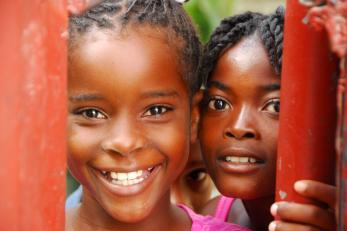
While supporting the emergence of women leaders, we are also providing opportunities for women and girls to build their self-confidence, knowledge, and opportunities to become equal partners at all levels — in the household, in their communities, and in society at large.
